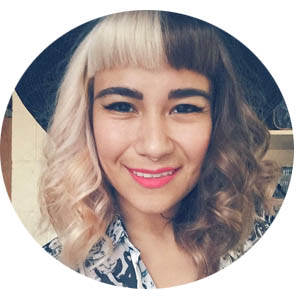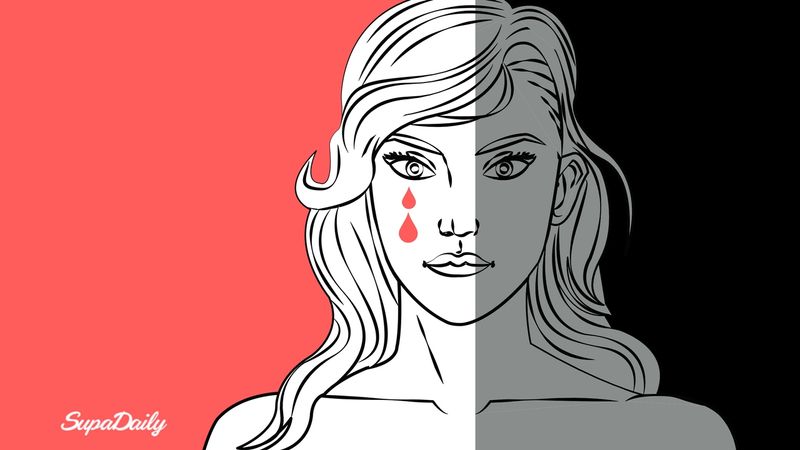Men ain’t shit. This is not news, this is not something that I even focus my work on, but follow people like Mala and Zahira on social media to get a vast and comprehensive critique on men’s ain’t-shit behaviors. I am a girls girl, for survival. I walk into rooms and I flock towards women, hoping that no matter the horizontal violence that women do to one another to uphold and maintain the status of the patriarchy, it is always easier to deal with women than it is to deal with ain’t shit men.
Then I moved to Nashville and I came upon a certain kind of woman who I cannot seem to shake off and cannot seem to escape. In Nashville I came in close contact, for the first time, with white women and with them I’ve experienced some of my most dreadful interactions.
White women are allowed to be curious about other peoples’ humanities, white women are allowed to be read at well-meaning CONSISTENTLY, despite their consumptive inclinations to want to inhale and ingest those oppressed communities around them. White women tears stop conversations on race, class, and gender AT ITS HEELS because white women’s feelings are considered sacred. I repeat, white women’s tears are the seemingly benevolent oppressor that “didn’t mean” to be racist, but is.
“I write this because when I cry, I am viewed as combative.”
And you see, I can rattle off the many ways in which white women are complicit in white supremacy and the systematic oppression found in racist AmeriKKKa. Yet, every single time I get into an argument or disagreement with a white woman I am still blown away with how oblivious they are about their disinterest with social justice, but more concerned with how they feel about everything.
Exhibit A: I was recently in a room FULL to the rim with white people, and I was existing. What that means for me is that I am dressed in clothes that I have continually referred to as armor for protecting myself in primarily white spaces. In this instance, my armor is a plaid circle skirt, with a crop top that comes right above the waist of my skirt. I do not interact with many people, and the small interactions I do have are polite and quick. Days later, first thing I hear about said encounter was that the white women in the room were offended with what I had chosen to put on MY BODY. Me, a brown immigrant women from the hood, being criticized by “well-intentioned” upper middle class white women who seem entitled to what I do with my body; white women who seem oblivious about their classist and racist opinions about my existence. The implication is that existing is a privilege, which they must give us permission to partake in, and to exist outside of their sanctioned ideas of “proper” is reproachable.
Exhibit B: A few months back I spoke at a university and received a lot of hugs from students of color who finally felt seen at this white serving institution. Yet a few weeks later, a white woman wrote an article for this school’s newspaper complaining about the lack of representation of HER experience at my talk titled “Brown Girl.” And her assurance in herself that ALL spaces should center around her MADE her feel excluded, though it never occurred to her that spaces are consistently meant for her [white] comfort and therefore this particular space was necessary for those who never feel represented. It never occurred to her that maybe her opinion was not welcomed. Because whiteness is always at the center, and the implication is that our comfort should be what makes them comfortable, and the exclusion of their feelings is wrong.
Exhibit C: I, a relatively known writer in my own right – hosted a dinner party for my partner’s friend and his wife. And as I am sitting, attempting to be a good hostess, I am met with these three words concerning my commentary on racism in AmeriKKKa: “I am sorry that someone hurt you this badly. I wish I could take that pain away.” And I sat a bit baffled, as if the wind had been taken from out of me. I sat there, stupidly smiling, because I did not know how to reply. How does my thriving and productive work on racism somehow get belittled to a “place of hurt” instead of legitimate work to undo white supremacy? And the audacity to sit, as a white woman, across someone like me whose successfully uplifting folks and call that person “hurt” instead of “empowering.” The presumed innocence of white women means that they get to not see in color, and they don’t mean for bad things to happen, all while doing little to stop it and seeing those of us doing work to undo their complicity as hurt people instead of do’ers and think’ers. The insulting insinuation that these are isolated feelings and not systematic oppression was probably what blew me away the most.
Help Power Up Our Work. Sign up for our ‘BoldLatina News’ or Become A ‘BoldLatina Collective’ Member Invest In Our Latina Newsroom + Future.
These three things have all occurred within the span of a few months, and these three incidents are just a few of the examples I can recall of white women upholding white supremacy and patriarchal views of people, all while calling themselves liberal and supportive.
I write this because when I cry, I am viewed as combative. But when they cry because I have responded to their racism, I am still viewed as combative.
Today I am highlighting the fact that white women might just be as bad as white men when it comes to the oppression of people of color, and women of color, and history reinforces that statement.
Prisca Dorcas Mojica Rodriguez , Contributing Writer & Founder, Latina Rebels
, Contributing Writer & Founder, Latina Rebels

